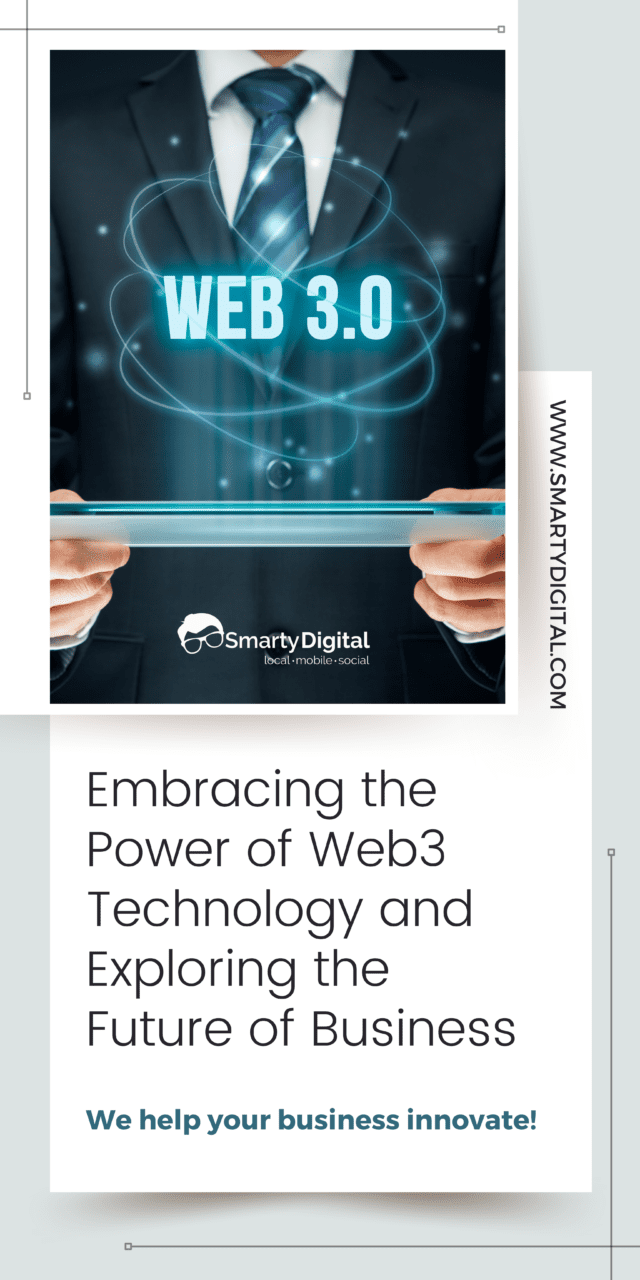In recent years, the digital landscape has undergone a remarkable transformation, driven by technological advancements that have revolutionized the way we interact with the online world. One such groundbreaking development is Web3 technology, which promises to reshape the future of businesses and empower them with unprecedented opportunities. In this article, we will explore the benefits of Web3 technology and how it can pave the way for enhanced business operations, increased efficiency, and improved user experiences.
What is Web3 Technology?
Web3 technology, also known as the decentralized web, represents the next evolutionary step in the internet’s development. It is an architecture built on decentralized networks that aim to shift control from centralized entities to individual users. Unlike Web2, where users are dependent on intermediaries for their online interactions, Web3 empowers individuals by allowing them to directly engage in peer-to-peer transactions and interactions through the use of blockchain, smart contracts, and decentralized applications (dApps).
Enhanced Security and Trust
One of the most significant advantages of Web3 technology lies in its inherent security and trust mechanisms. Traditional centralized systems are susceptible to data breaches, hacking attempts, and malicious activities. In contrast, Web3 leverages blockchain technology, which employs cryptographic algorithms and decentralized consensus protocols to ensure the integrity and immutability of data.
With Web3, businesses can enhance their security by removing the reliance on single points of failure and distributing data across a network of nodes. Additionally, the use of smart contracts enables automated and transparent execution of agreements, eliminating the need for intermediaries and reducing the risk of fraud.
Empowering Ownership and Privacy
Web3 technology empowers individuals by allowing them to retain ownership and control over their data. In the current digital landscape, users often surrender their personal information to centralized platforms, which monetize it without their consent. Web3 enables users to store their data in decentralized networks and decide how it is accessed and utilized.
This increased control over personal information not only enhances privacy but also offers businesses an opportunity to build trust with their customers. By adopting Web3 principles and ensuring user data sovereignty, companies can differentiate themselves as privacy-focused entities, attracting customers who value data protection and transparency.
Streamlined Transactions and Improved Efficiency
Web3 technology introduces frictionless and efficient transactions through the use of cryptocurrencies and decentralized finance (DeFi) protocols. Traditional financial systems often involve intermediaries, delays, and high transaction fees. Web3 eliminates these barriers by allowing peer-to-peer transactions, enabling near-instantaneous global payments, and reducing transaction costs.
For businesses, Web3 offers streamlined payment processes, enhanced liquidity, and the ability to access a broader range of financial services through DeFi platforms. This not only fosters financial inclusion but also opens up opportunities for new business models and revenue streams.
Unleashing the Power of Decentralized Applications
Decentralized applications (dApps) are a fundamental component of Web3 technology. These applications leverage blockchain and smart contract capabilities to create transparent, censorship-resistant, and community-driven platforms. dApps can disrupt various industries, such as supply chain management, healthcare, gaming, and content creation, by introducing new business models and eliminating intermediaries.
For businesses, dApps offer the potential to enhance operational efficiency, reduce costs, and provide unique value propositions to their customers. By leveraging decentralized networks and smart contracts, organizations can streamline complex processes, automate trust-based interactions, and create innovative solutions tailored to specific industry needs.
As Web3 technology continues to evolve and gain momentum, businesses that embrace its potential stand to reap significant benefits. By shifting from centralized models to decentralized architectures, organizations can tap into a new paradigm that prioritizes security, ownership, privacy, and efficiency.
The decentralized nature of Web3 technology, backed by blockchain and smart contracts, enhances security by eliminating single points of failure and reducing vulnerabilities to hacking and data breaches. This heightened security not only protects businesses and their customers but also builds trust and confidence in the digital ecosystem.
Furthermore, Web3 empowers individuals by allowing them to retain ownership and control over their data. In an era where data privacy is a growing concern, businesses that prioritize data sovereignty can differentiate themselves as trustworthy entities. By respecting user privacy and offering transparent data practices, organizations can foster strong customer relationships and loyalty.
The streamlined transactions and improved efficiency offered by Web3 technology are particularly beneficial to businesses. Through the use of cryptocurrencies and DeFi protocols, companies can enable frictionless, near-instantaneous global payments while reducing transaction costs. These advantages open up opportunities for businesses to expand their customer base, access new markets, and explore innovative revenue streams.
Decentralized applications (dApps) are a key component of Web3 technology and have the potential to revolutionize various industries. By leveraging blockchain and smart contract capabilities, businesses can streamline complex processes, automate trust-based interactions, and create disruptive solutions tailored to specific industry needs. dApps offer organizations the ability to enhance operational efficiency, reduce costs, and deliver unique value propositions to their customers.
In conclusion, Web3 technology presents an exciting frontier for businesses, offering enhanced security, improved efficiency, increased user empowerment, and the potential to unlock new opportunities. As the digital landscape continues to evolve, organizations that proactively embrace Web3 technology will be well-positioned to thrive in a decentralized future. By leveraging the benefits of Web3, businesses can establish themselves as leaders in their industries, drive innovation, and create sustainable competitive advantages. It is crucial for businesses to start exploring and adopting Web3 technology to stay ahead in the rapidly evolving digital world





